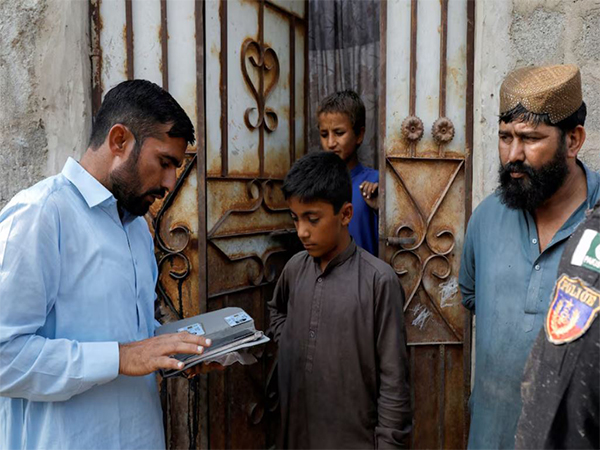China's social safety programme being used to suppress dissent, says US researcher
Dec 19, 2020

Beijing [China], December 19 : China's social safety net programme, known as dibao, is increasingly being used as a tool to suppress dissent in the country, according to research from a US-based social scientist.
According to South China Morning Post, the programme guarantees minimum living standards, targeted at reducing income inequality by providing unconditional cash transfers and benefits to people whose income falls under a threshold set by the government.
However, a study by the Chinese Academy of Social Sciences in 2012 found that out of the households entitled to the benefits, only 20-30 per cent of them ended up receiving them.
"What's unique about dibao is that over time, especially following the Falun Gong protests in 1999, you see a change in how the Chinese government thinks about stability - how important it is, what its relationship to economic development means, as well as how to pursue it... So there's the comprehensive management of public security. And because of those changes, dibao is then used very specifically to control individuals," said Jennifer Pan, an assistant professor of communication at Stanford University, in an interview.
In 2012-13, Pan, also an author of Welfare for Americans, which introduces the idea of 'repressive assistance' in China, had interviewed dozens of government officials, as well as applicants and recipients of the programme, while also surveying 100 neighbourhoods to test whether political order was tied into the distribution.
She said that it became clear to Chinese authorities that security alone could not guarantee political order in the area, so the social safety programme began to be used what Beijing deemed 'targeted populations', including former prisoners and people considered threats to stability.
"You can make someone less likely to take action ... by giving them material benefits... It's not threats or violence, it's instead, giving them very minimal resources. That keeps them in a particular socio-economic state," she told South China Morning Post.
In its early years, dibao was used mainly to reduce urban poverty in China as a reform of state-owned enterprises which led to mass lay-offs in the 1990s. The level of assistance varies between provinces but is generally lower than unemployment insurance and minimum wage.
An important aspect related to social control is that benefits are low enough for people to depend on, yet not enough to enable them to mobilise against the state, Pan said.
According to South China Morning Post, the number of dibao recipients has been shrinking since 2011 in both rural and urban areas, partly because of local government funding constraints and resistance from public believing that welfare decreases incentives to work.
According to Pan, the local government might also want less people in the programme in order to project that it was successfully reducing poverty.
She remarked that it was reasonable to believe such a campaign continued because many Chinese academic articles on using video surveillance and big data to identify these groups had been published in recent years.
"People who are put into targeted populations, for the most part, are those who have some history in the past that make them easy to identify for the government," said the assistant professor.
This comes amid as China has upscaled a crackdown against dissenters, pro-democracy activists and politicians, and several arrests being made since the passing of national security law in Hong Kong, which is deemed as draconian by people of the area and countries like the United States.




















